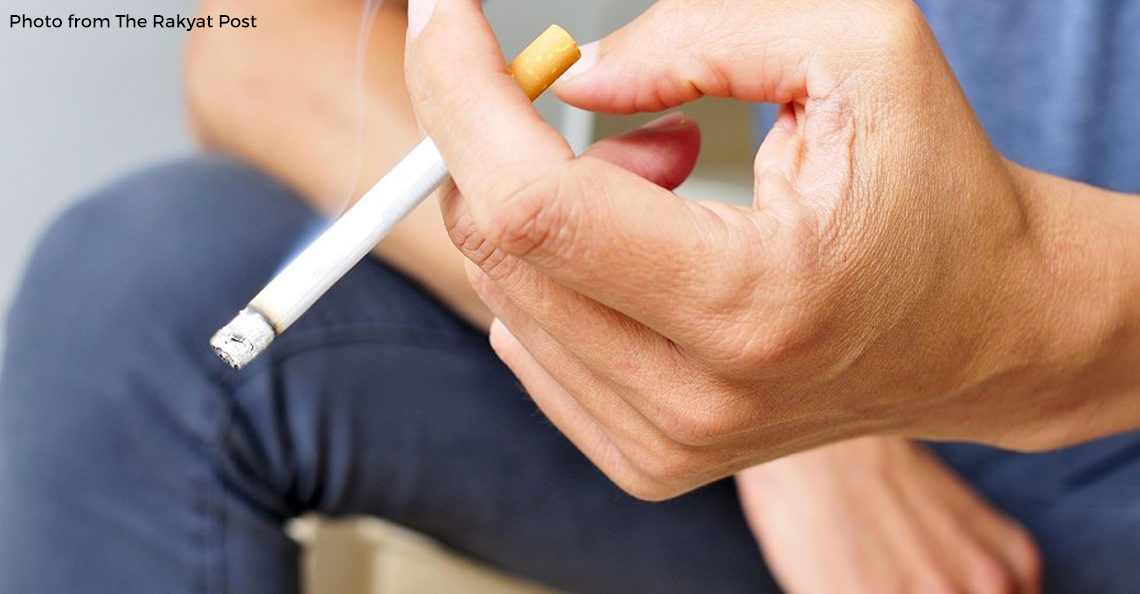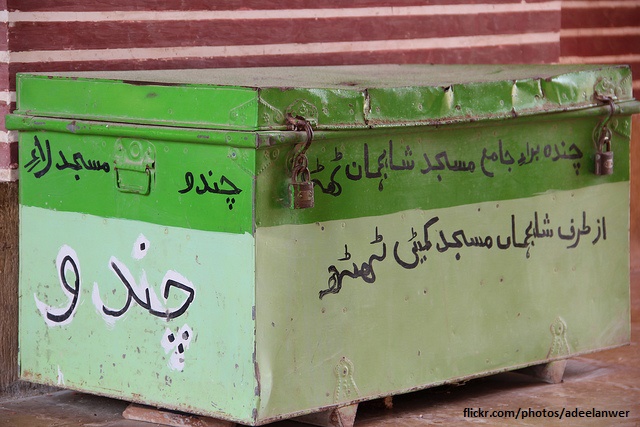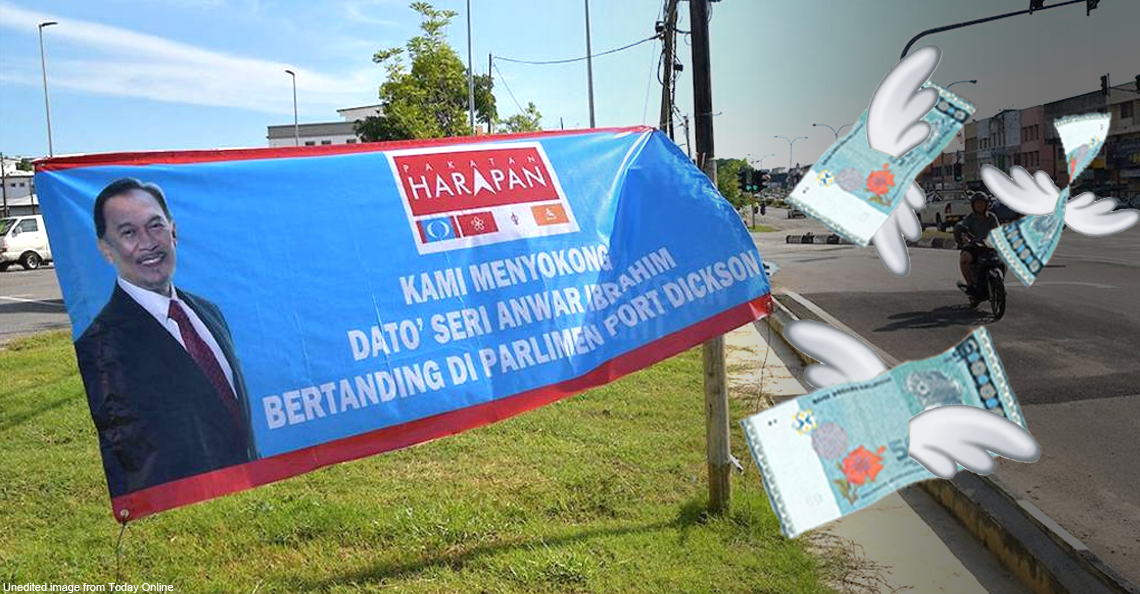Can Malaysian smokers sue the government for taking away their rights?
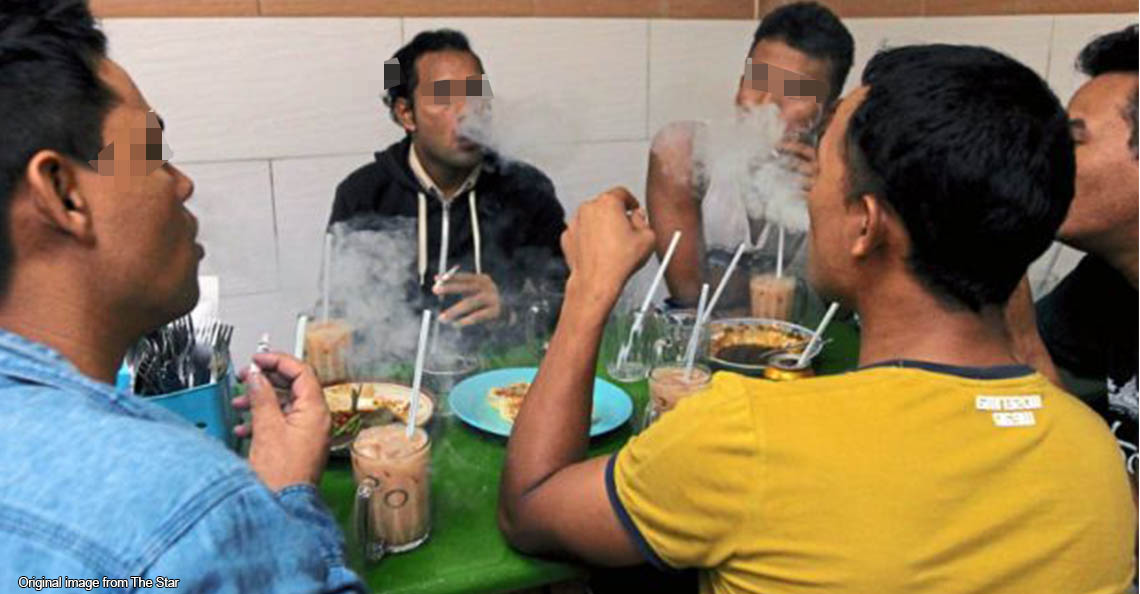
- 4.6KShares
- Facebook4.4K
- Twitter30
- LinkedIn22
- Email52
- WhatsApp103
This article was originally published on 13th Feb 2017.
If you’re a smoker, you’d know there’s nothing ironic about enjoying a cigarette while enjoying some fresh air in the neighborhood padang or after a nice long hike in one of Malaysia’s many national parks.
But here’s some bad news… On February 1st 2017, all public parks in Peninsula Malaysia have been declared no-smoking zones by law. In short, what this means is that whether you’re at the playground, KLCC park, or Taman Negara; the only place you can smoke is at the car park (and only if it’s open air). And if you happen to be reading this article while smoking at a park, STUB IT OUT QUICK AND LOOK INNOCENT – you can be fined up to RM10,000 and jailed for up to two years if you get convicted in court.
[UPDATE 31/12/18] And that’s not all. Starting tomorrow (yes, 1st January 2019), smokers are banned from smoking at restaurants and food premises. Under the law, smokers can only smoke 3 metres away from eateries. And although all states in Malaysia will enforce the smoking ban at all eateries tomorrow, it was reported that Sarawak won’t be enforcing this just yet.
Although most people agree to this ban, some smokers actually tak puas hati with this la. So, what can they do?? [END OF UPDATE]
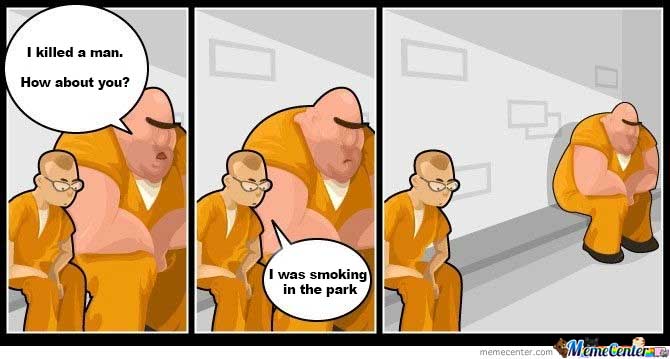
While we’re not advocating smoking by any means, this new rule raises some burning questions such as whether Malaysia will get to the level of some western countries where smoking is heavily controlled, and if these rules actually go against a smoker’s right to smoke. But do smokers have rights in the first place???
In order to answer these questions, we have to start with the basics: Where did our smoking laws come from?
Malaysia started controlling smokers since the 70’s
Depending on when you were born, you may remember a time in the 90’s when cigarettes were openly advertised on TV and newspapers or, like the CILISOS editor, a time in the 60’s when you could actually smoke in the cinema. #GettingFired #EditorNotThatOld
Jokes about our editor’s age aside, the ban on smoking in cinemas in 1974 was the first initiative ever taken in Malaysia to control tobacco usage. However this wasn’t a nationwide rule… the bans only happened because a few municipal councils thought it was the right thing to do, so smokers could just go to a different district that didn’t have such a ban. The first “official” laws for smoking only came in 1993 when Parliament passed the Control of Tobacco Product Regulations 1993. This brought the first wave of nationwide restrictions such as no selling of cigarettes to minors, heavily controlled advertising of tobacco products, and a long list of places where you can no longer light up.
We say “first wave” because after Malaysia joined the World Health Organization’s treaty on Tobacco Control, they further strengthened the laws by replacing the 1993 one with the Control of Tobacco Product (Amendment) Regulations 2004. This law was further improved through many revisions (amendments) over the years, with the latest one introducing the ban on smoking in public parks.
So with the rules on smoking getting progressively tighter, we only have to wonder if smokers will one day be protesting over their right to smoke…
Is there such a thing as “Smoker’s Rights”?
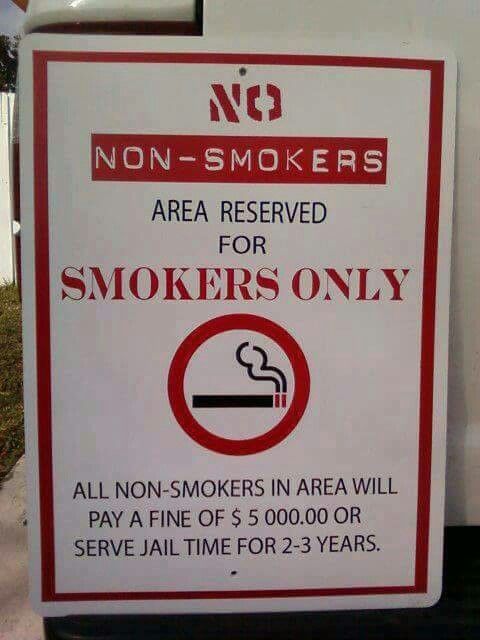
Again, don’t get us wrong – we can all pretty much agree that smoking is an unhealthy habit that can also harm the people around us via second-hand smoke – but it’s still a pretty interesting topic to look at because at the most basic argument, if people didn’t have the right to smoke, then why not declare cigarettes illegal and ban smoking altogether?
Well, it’s mostly due to tax money and jobs, but that’s outside the topic.
Whenever we talk about rights, the first and (in some cases) final point of reference would always be the Federal Constitution. While it doesn’t actually say anything about smoking (obviously), almost all our laws and national decisions can be tied back to it. CILISOS lawyer friend Fahri Azzat explains it in better detail:
“I think we start off from the perspective that people can generally do whatever they want to do. The law does not go into such detail in specifying what we can or cannot do. So we go about doing what we do until the law steps in … and then we have an opportunity to challenge that. – Fahri Azzat, in email interview with CILISOS.
What Fahri means by a “challenge” is that we take the case to the courts, who’ll then use the Federal Constitution to interpret if what you want to do falls under a Fundamental Liberty (aka your “Rights”) or not. As an example, when determining whether or not the Bersih rally should be allowed, the argument eventually leads back to the right of freedom of speech and assembly guaranteed by the Federal Constitution.
So when it comes to smoking, Fahri points out two Fundamental Liberties that can be applied. Article 5 (Page 21) which protects your right to personal liberty and, to a lesser extent, Article 10 (Page 24) which protects your right to freely express yourself.

Without going into a philosophical or ethical discussion, what distincts humans from animals is our ability to make choices, even though some of these choices can be harmful to ourselves. In many cases, these choices translate into lifestyles, such as whether you’d want to spend the rest of your life chasing wealth and fame or grow a mustache and wear a hat to ironically express your individuality like 90% of men who walk into cafes. Ironically.
“The question would be how ‘life or personal liberty’ should be construed. If ‘life or personal liberty’ includes lifestyle, a way of life (despite having an element of self-harm) instead of just animal existence then a case can be made out to say that smoking is a lifestyle that should and can be allowed.” – Fahri Azzat
Considering that many smokers smoke on a consistent basis and that slightly more than 1 in 5 Malaysians are smokers, it can be argued that smoking isn’t just a lifestyle but a pretty darn common one. But does this mean we can ask non-smokers who ask us to not smoke around them to butt out because they’re infringing on our rights?
TLDR; You have a right to smoke, but until someone tries challenging the laws in court, be prepared for more restrictions on where you can light up.
OMG, Smokers need to challenge this in court! Bangkit maruah Perokok!!!

So this is what it boils down to… whether smokers can challenge all these anti-smoking laws in court by trying to convince them that these laws are unconstitutional. As reference, it has been successfully done before in other circumstances, such as the recent Court of Appeal ruling which decided that a part of the Sedition Act was unconstitutional because it violated the right to freedom of speech.
We asked Fahri if such a challenge was possible, and he says…
“It is possible but depends very much on whether the court recognizes smoking as something that is intrinsic to one’s lifestyle that should be protected.” – Fahri Azzat
And this is where the problem comes in because, outside from the argument that you should be allowed to smoke anywhere because you really like smoking, there are no positive outcomes to convince the court to side with you simply because 50+ years of ongoing research have shown that smoking is bad for you and the people around you. In fact, if we really wanna get down to it, there is probably a greater argument in legalizing Marijuana and banning cigarettes instead since research has indicated that responsibly smoking pot can be less damaging than cigarettes, not to mention the medical benefits. Fun fact: A Malaysian Youth Parliament member actually proposed “legalizing” Marijuana use in 2016.

And if you felt a sense of outrage at the idea of legalizing Marijuana and having stoners openly walking around and buying up all your potato chips, then it perfectly illustrates the other challenge that smokers will face – Public perception and support. Although we mentioned that 1 in 5 Malaysians are smokers, it also means that the other 4 are non-smokers who probably won’t be too happy at the prospect of doing their weekend shopping in a haze of cigarette smoke. In a time when even most smokers recognize and acknowledge the risks, and when other countries are similarly tightening their smoking laws – or like Bhutan, which completely banned tobacco altogether – any court or MP would need to have telurs of steel to publicly support doing the opposite.
TLDR; Based on public sentiment alone, trying to argue that smoking should be a Constitutional right would be a pretty uphill battle, but it’s when we try to come up with reasons to support the argument that things start going Dunhill.
However there is one thing you have a better chance of challenging….
Is it fair to go to jail if you really didn’t know about the law?
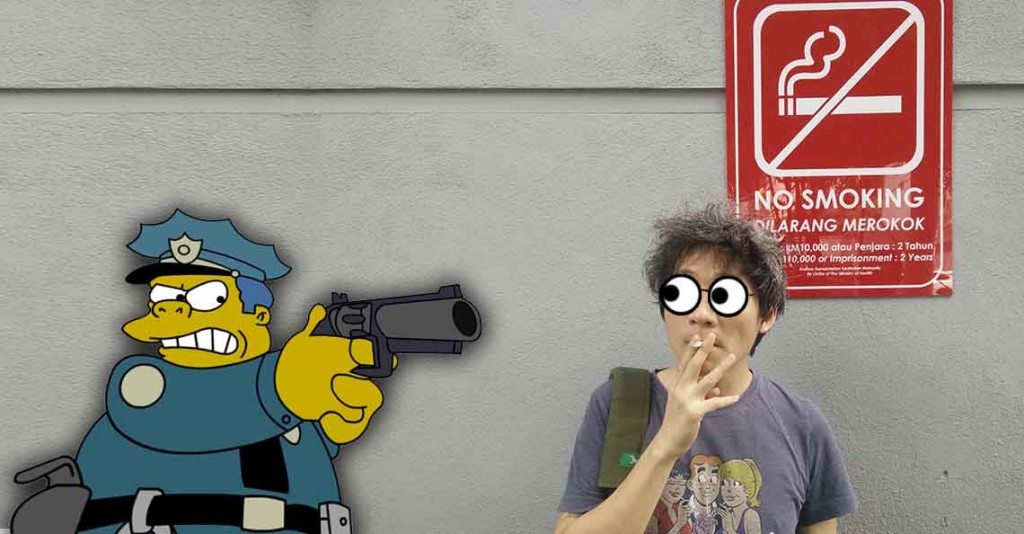
So straight up, how many of you knew that smoking in public parks is now illegal? Better yet, how many of you knew that smoking in highway rest stops (R&R) have been illegal since 2015?
If this quick check at the KLCC Park by The Star is anything to go by, we think the overall answer lies somewhere between “I don’t know” to “I don’t care”. Since it’s not a focus of this article, let’s just quickly address the elephant in the room that laws are pretty much useless if they aren’t properly enforced. One of the major problems Bhutan faced with its tobacco ban was actually getting the manpower and training to ensure that the law is properly and equally enforced. With Malaysia, it’s been noted that these non-smoking laws haven’t been enforced well either.
So assuming that you’re smoking in the park one day and an officer comes out and summons you. Can you use the excuse that you didn’t know about the law? Well, we asked Fahri and he says:
“No, but I think a valid case should be made out for that. If you ask me, I think it’s crazy how much law there is out there. And how fair is it for each citizen to be expected to know the law when new legislation is put out every day, difficult to digest and understand and apply correctly, and yet when you do something in ignorance of it, kapow! You get fined or are guilty of something.” – Fahri Azzat
To be fair, the reason why ignorance of the law isn’t an excuse is so you can’t say you weren’t aware that murdering someone was illegal. But for something like smoking, shouldn’t there be a second chance system or at least more effort in educating people about it? Assuming that the law is actually enforced in the first place.
So here’s a question… Do you think it’s fair to be held responsible for violating a law you don’t know about, smoking or otherwise?
- 4.6KShares
- Facebook4.4K
- Twitter30
- LinkedIn22
- Email52
- WhatsApp103

